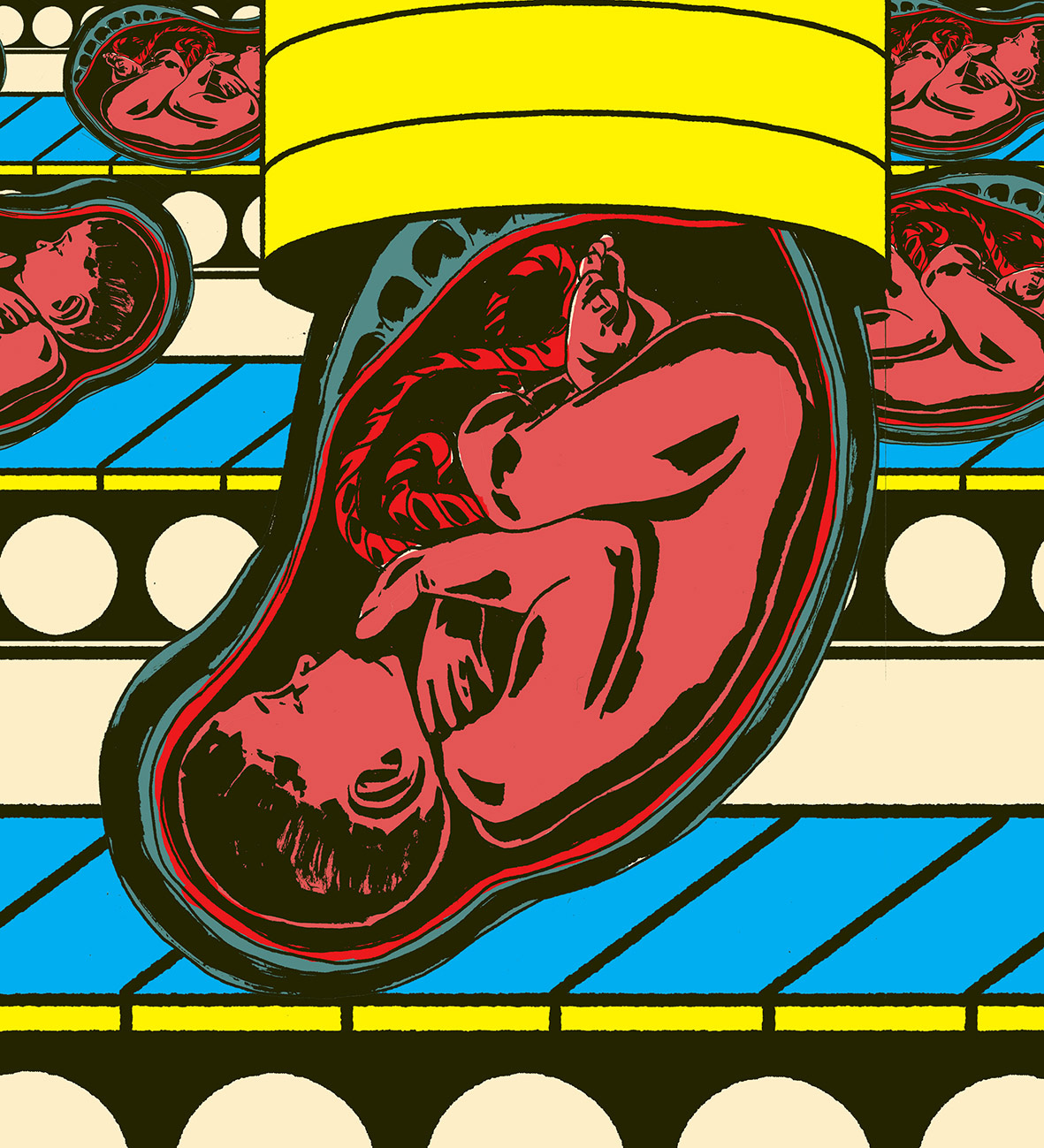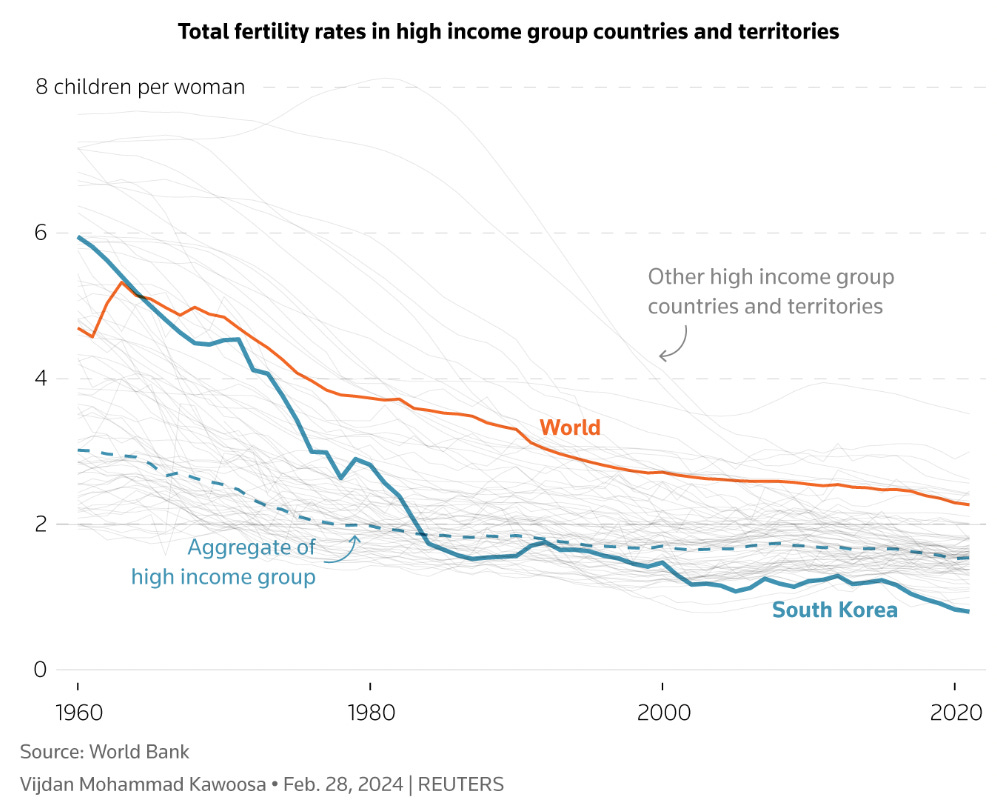Pronatalism has a repugnant conclusion problem
On the necessity of a softer pronatalism

There’s a new intellectual movement in town called pronatalism: those who want others (and themselves) to have as many kids as possible to avoid population collapse. Some advocates of the movement with large platforms, like Elon Musk, have popularized the issue, arguing that countries in the developed world are increasingly below replacement rates. South Korea, for instance, where politicians have declared population decline a national emergency, will be halved in terms of working age people by 2100. Musk says declining birth rates means that “civilization is going to crumble.” The worry, shared by other pronatalist advocates, is that population decline will have (at minimum) longterm negative economic and cultural effects. Suddenly, there are pronatalist conferences. Funding from billionaires. Recently viral prominent media profiles of advocates. In fact, in the past month there have been pieces about pronatalism in places like The Guardian and New York Magazine. Politico even covered a pronatalist conference. Although currently the issue is more conservative coded, pronatalism of one form or another spans political aisles; look no further than Matthew Yglesias’ pro-argument for One Billion Americans.
The switch, which is the reverse of population overgrowth concerns of the 1960s (spurred by books like The Population Bomb by Paul and Anne Ehrlich), is motivated by the fact that high-income developed countries have indeed fallen below replacement rate. Leading the charge is South Korea, where Seoul has a fertility rate of merely 0.55 and the government is paying people hundreds of dollars to reverse vasectomies.

I must say though, conceptualizing pronatalism as a distinct new “movement” is a bit funny because almost everyone I meet is vaguely what might be called a “soft pronatalist.” At least, a lot of them: they like babies, are happy when people get pregnant, and generally default in expectation to others, and themselves, having kids. Perhaps this is because I live in a town on Cape Cod that has a lot of moms and dads and I therefore go to a lot kids’ birthday parties (they are not as tortuous as media would have you believe—in fact, they can be more energetic than a Berlin nightclub, since no one can dance with more abandon than a toddler). But such towns are not unique. They are all over America, and the world. Despite declining birth rates, 69% of adult Americans polled currently have kids. It is still the norm. Only 8% of Americans polled by Gallup do not want children by choice.
So it seems to me there is both a “soft pronatalism” that is already the norm (albeit arguably less so than in the past), and then a new “hard pronatalism” that is being advocated for. How to square the two? And is hard pronatalism even philosophically defensible? Should people really be having seven kids as a moral act?


